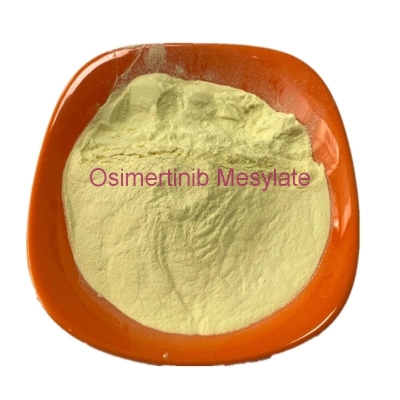-
Categories
-
Pharmaceutical Intermediates
-
Active Pharmaceutical Ingredients
-
Food Additives
- Industrial Coatings
- Agrochemicals
- Dyes and Pigments
- Surfactant
- Flavors and Fragrances
- Chemical Reagents
- Catalyst and Auxiliary
- Natural Products
- Inorganic Chemistry
-
Organic Chemistry
-
Biochemical Engineering
- Analytical Chemistry
- Cosmetic Ingredient
-
Pharmaceutical Intermediates
Promotion
ECHEMI Mall
Wholesale
Weekly Price
Exhibition
News
-
Trade Service
Lung cancer is the leading cause of death from cancer, and lung cancer cells exhibit heterogeneity, making it adaptable and limiting the success rate of existing treatments.
heterogeneity is a property that many biological systems and diseases, such as cancer, have.
bioplasticity of cancer cells is a form of heterogeneity that adapts to cancer treatment at an early stage and limits the success of precise methods of cancer treatment.
addition to the heterogeneity of cancer cells, cells in the tumor micro-environment (TME) further promote tumor heterogeneity in an external way.
Although these tumor micro-environments and tumor heterogeneity have been characterization in many cancer subtypes, our understanding of how these traits evolve and interact vertically in systemic therapy remains incomplete, especially in metastasis tumors.
recently, researchers published a study in the journal CELL.
it used single-cell RNA sequencing (scRNA-seq) to dissect 49 samples (45 pulmonary adenocarcinoma, 1 squamous cell carcinoma, and 3 tumor-adjacent tissues (TATs), which corresponded to 30 tumor patients.
used a customized workflow to isolate surviving single cells, mainly from small tissue samples and surgical excision.
samples were divided into three separate points in time and subclassified further by carcinogenic drivers.
the gene expression spectrum of 23,261 cells after quality control filtration.
normalization of gene expression, the researchers performed a primary component analysis (PCA) and used graph-based clustering to cluster cells in the information PCA space (n s 20).
resulting clusters of cells are annotated as immune, substations (fibroblasts, endotyl cells, and melanin cells) or endotrine cells through established marker genes.
cells (n-5,581) were divided into subsets and reassended into 26 discrete endothy clusters.
single-cell map of more than 20,000 cancer and tumor micro-environments (TME) exposes a rich and dynamic tumor ecosystem, and scRNA-seq of cancer cells reveals clinically d'ethonically available targeted cancer genes.
As a residual lesions (RD) that survives treatment, cancer cells express the characteristics of albath-regenerative cells, indicating a change in the state of the original cells induced by the treatment, while those present in the treatment of progressive diseases (PDs) increase the canine urea, granulocytes, and gap connection path.
also found that RD is characterized by active T lymphocytes and reduced macrophages, and that PD is characterized by immunosuppressive cell states.
revealed by scRNA-seq are biomarkers of clinical results in independent cohorts.
study highlights how the adaptability of the multicellular ecosystem for treatment-induced metastasis cancer leads to clinical outcomes in lung cancer.
.







